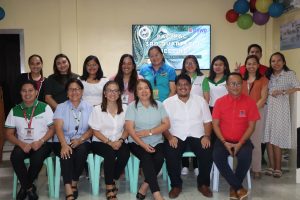On September 17, 2024, the Provincial Advisory Committee (PAC) and Provincial Grievance Committee (PGC) of the Pantawid Pamilyang Pilipino Program (4Ps) convened at the Provincial Agriculture Office (PAO) in the Capitol Compound, Butuan City. This quarterly meeting brought together key stakeholders from various agencies, including the Provincial Health Office (PHO), Provincial Department of Health Office (PDOHO), PhilHealth, Department of Education (DepEd), National Commission on Indigenous Peoples (NCIP), Technical Education and Skills Development Authority (TESDA), PAO, Provincial Social Welfare and Development (PSWD), and the Provincial Local Government Unit (PLGU).

During the meeting, PAC and PGC members shared updates on their recent accomplishments and initiatives aimed at supporting 4Ps beneficiaries across Agusan del Norte’s municipalities and cities. Each agency provided insights into their specific programs, emphasizing how their services directly benefit the families enrolled in the 4Ps.
The Department of Social Welfare and Development (DSWD) also presented updates on its core programs, including the Sustainable Livelihood Program (SLP) and the Kapit-Bisig Laban sa Kahirapan- Comprehensive and Integrated Delivery of Social Services (KALAHI-CIDDS) project. These initiatives, along with contributions from the Social Welfare and Development (SWAD) team, aim to enhance the overall well-being of Pantawid families.
The meeting highlighted the comprehensive approach taken by various agencies to address multiple dimensions of poverty. Efforts are focused on critical areas such as health, education, livelihood, and social services. By collaborating across sectors, these agencies aim to provide Pantawid families with a more extensive range of resources and support, ultimately improving their quality of life and helping them achieve greater self-sufficiency.
This coordinated effort underscores the commitment of local government and partner agencies to uplift the lives of vulnerable families in Agusan del Norte, ensuring they have access to essential services that can help break the intergenerational cycle of poverty.

